Alphacool Core Ocean T38 360 Review
Introduction
With Alphacool's new Core series of products, they are aiming to bring incredibly affordable cooling equipment while maintaining excellent performance. Sometimes, this may come at the cost of noise. Let's have a closer look at their AIO and see if it comes with the same issue their Fans did!
Positive
- Affordable
Neutral
- Performs average
Negative
- Not the best quality
- Too Loud
What's in the Box?

Very similar to the Core Lineup fans, the Core Ocean T38 360mm AIO comes with minimalism in mind. Inside the relatively simple, yet still esthetically pleasing box we will find the following items:
- Core Ocean T38 360mm Radiator
- 3x Core 120 2500RPM Fans
- Installation Material AMD / Intel
- 1-3 PWM Splitter
- Thermal Paste
On a side note, for some unexplainable reason, our box was also filled with manuals meant for other devices, like Alphacool's Eisbear water block. We are unsure how these manuals got there, but we assume it's been a mistake.

Down below we summarized the AIO's spec sheet:
| Name | Alphacool Core Ocean T38 |
| Dimensions (Radiator) | 397x120x38mm |
| Fan Airflow | up to 62.8CFM |
| Fan Noise | up to 34.4dbA |
| Fan Air Pressure | up to 2.76mm/H2O |
| Fan Speed | up to 2500RPM |
| Fan Connection | 4-Pin PWM |
| Pump Connection | 4-Pin PWM |
| RGB | Thin line around Water block & little triangle on Water block |
Compatibility
Although performance is the main and only focus for the Core Series of devices, compatibility is not something that has been lost in the process. Down below you will find a full compatibility list.
| Intel | AMD |
| LGA 1700 | AM5 |
| LGA 1200 | AM4 |
| LGA 115x | |
| LGA 2066 |
Individual Components
Waterblock / Pump

Considering that Alphacool is mainly a water-cooling product producer, our expectations for the water block and pump are considerably higher than for the fans.
Thankfully, they seem to be up to Alphacool's standards.
Below the water block pump combo, we will find a relatively big copper base with the 3500RPM quick ceramic PWM pump above.

Although this is a Core-Series device, we were surprised to find some esthetically pleasing features on here. All around the combo, there is a thin line of ARGB illuminating the whole block. Additionally, there is a little glowing triangle on the top side opposite to the stamped in Alphacool logo.
Even if the ARGB implementation is not the strongest we have seen so far, we do appreciate that there's something to look at.
All of the ARGB is controllable at once using the 3-Pin ARGB cable.
Radiator
One of, if not the most important aspect of this AIO is the Radiator.
Similarly to Alphacool's Liquid Freezer series, Alphacool decided to use a 38mm thick radiator instead of the usual 27mm that normal AIOs come with.

The additional thickness has been one of the reasons why Arctic has been dominating every Benchmark table for years. A spot that might need to be shared going forward.
Other than the immediately noticeable thickness increase, there is little interesting to note about the radiator, it's a relatively standard 360mm radiator, just slightly thicker.
Tubes
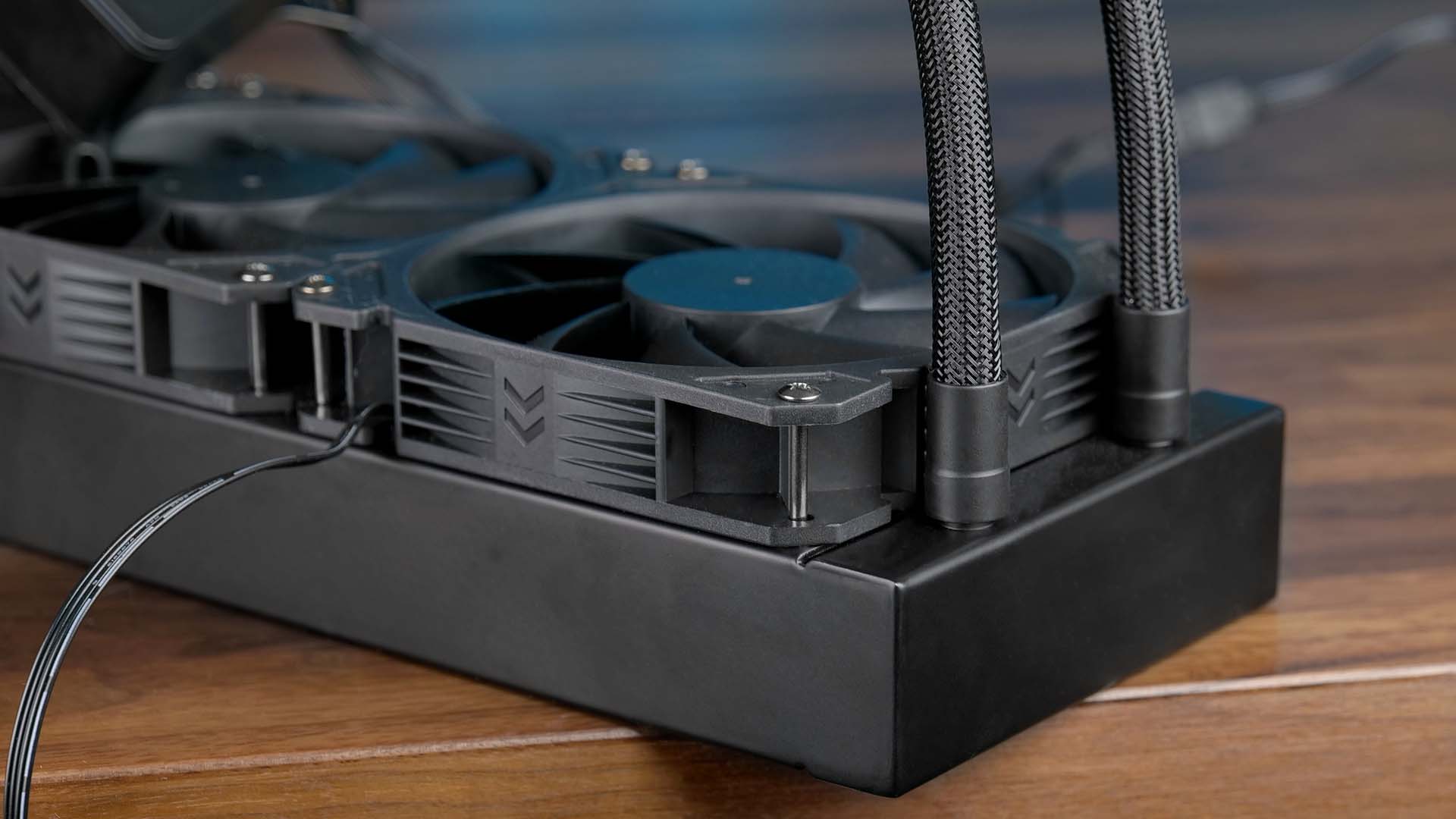
Although the water block might have escaped the "core" trap, the tubes have definitely not.
Being only 400mm long, we believe that the tubes are short to begin with. But we also immediately noticed the incredibly cheap feeling they come with.
Although they are sleeved and adjustable at the water block, there is very little positive to be said about them.
Fans
The Fans which come included in the Core Ocean T38 are Alphacool's Core 120mm 2500RPM fans.
Powered by a 4-Pin PWM cable, these little monsters are spinning at 2500RPM whilst pushing 62.8CFM at 2.13mm/H2O.

We have already independently tested these fans before. Although they did not perform badly for the price, their noise-to-performance definitely took some hits in development.
Appearance
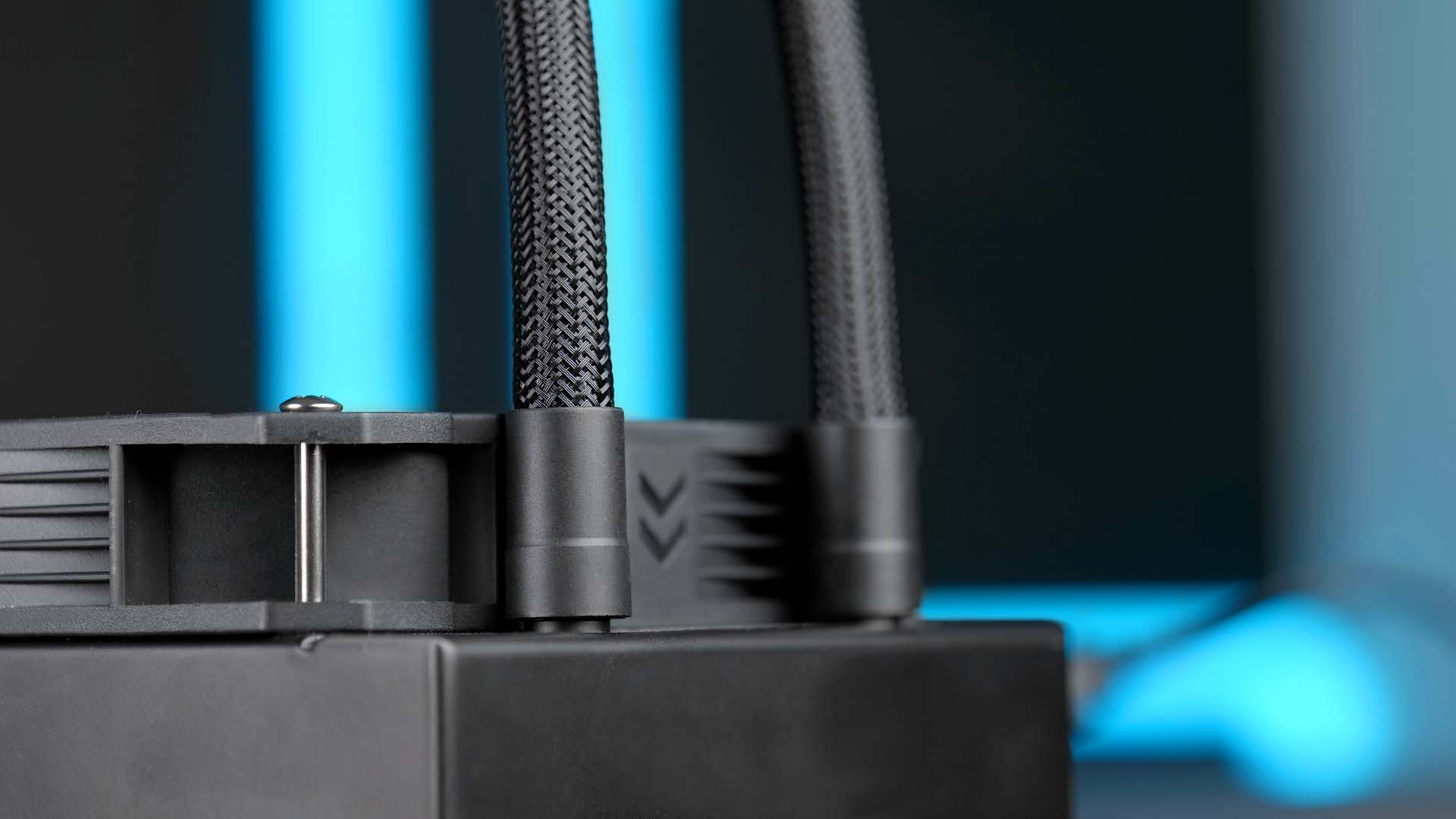
Similarly to every other Core series product, the Ocean T38 in 360mm is designed with minimalism in mind.
Being black from top to bottom, there are very few optical features that are noticeable from far.
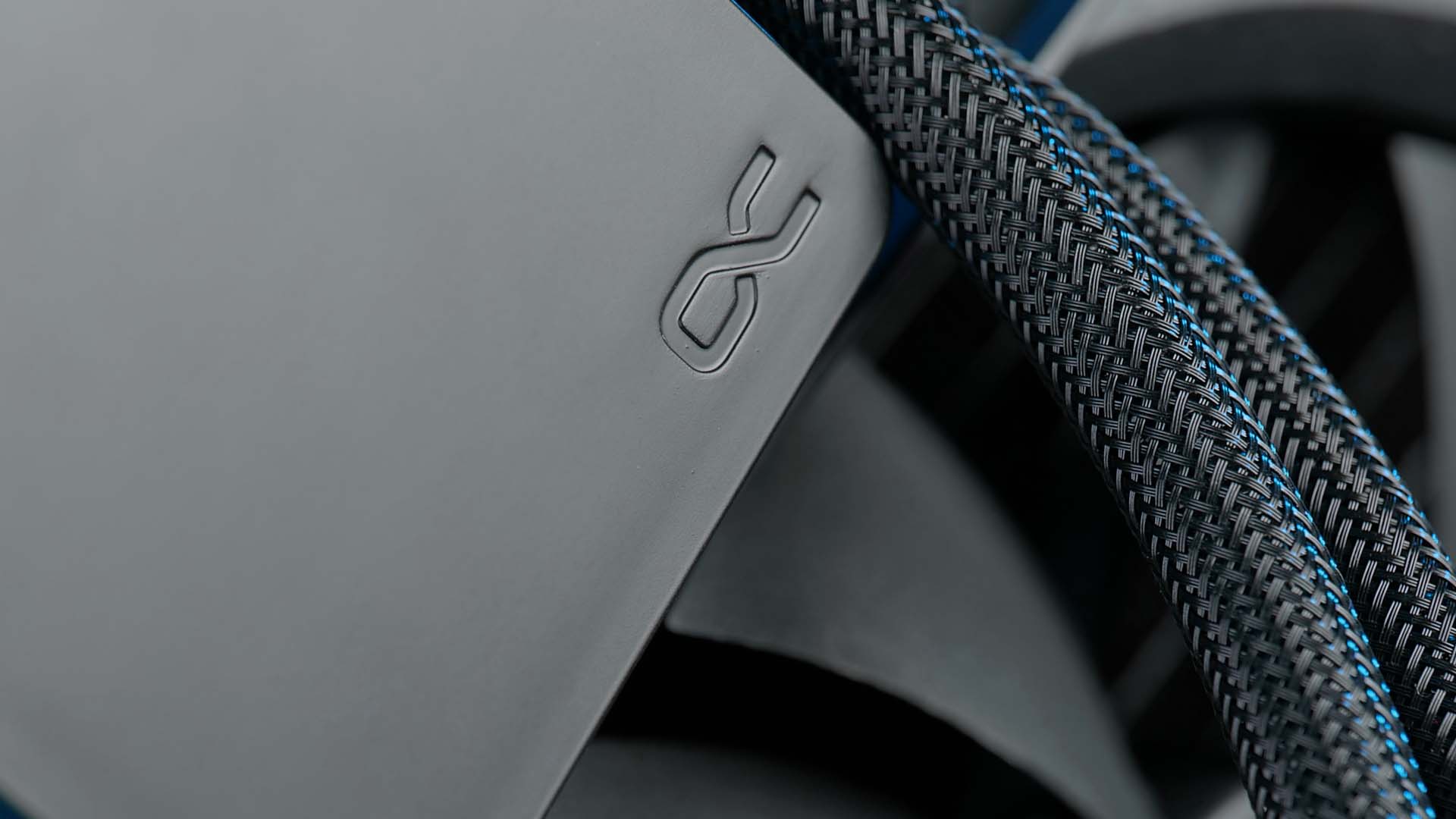
The only features that can be spotted would be the ARGB line and triangle present on the water block. But other than this little detail, everything else looks quite subtle.
One aspect we have definitely disliked about this AIO is the tubes. Ignoring their quite short length, they look incredibly cheap, something that could have been avoided with just slightly better sleeving.
Benchmark
We Benchmarked the Core Ocean T38 on top of our usual Benchmark setup.
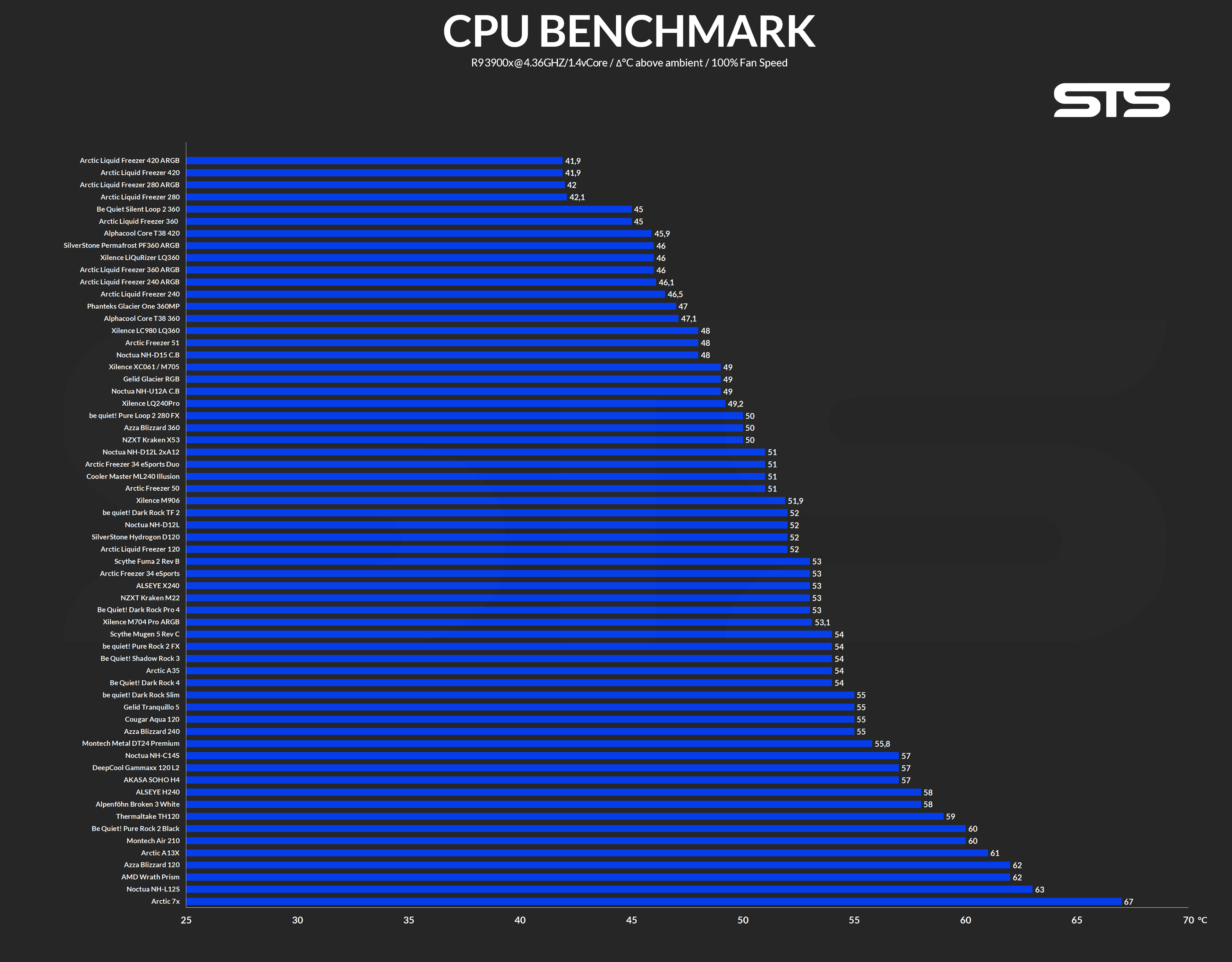
Whilst allowing all the fans to spin at their full 2500RPM, the Core Ocean T38 in 360mm managed to keep the CPU at 47.1°C above ambient.
This positions it right next to a few other 360mm AIOs like Phantek's Glacier One and Xilence's LQ360.
Although this is a very acceptable result on its own, it is still a surprising one.
Considering the thickness of the radiator, we would have expected the Core Ocean T38 to perform much better, or at least comparable to Arctic's Liquid Freezer series of AIOs.
.jpg)
Slowly reducing the Fan speed in 10% steps allowed us to create a Noise-to-Performance graph.
Here we were able to see something quite shocking.
Going down as far as 50% of the Fan's speed, it had absolutely no impact on the CPU's temperature.
We had to go as low as 40% fan speed to start seeing a change happen. Thankfully, at that "low" fan speed, the Noise of the T38 360mm caught up with other 360mm AIOs.
Although it was able to keep up with other 360 AIOs from start to finish, it was still one of the loudest, or hottest for the majority of the time.
Additionally, because the fans are already so loud, to begin with, it was not able to get the noise to a level low enough to be considered ambient noise, something that every other AIO has been able to do.
Conclusion
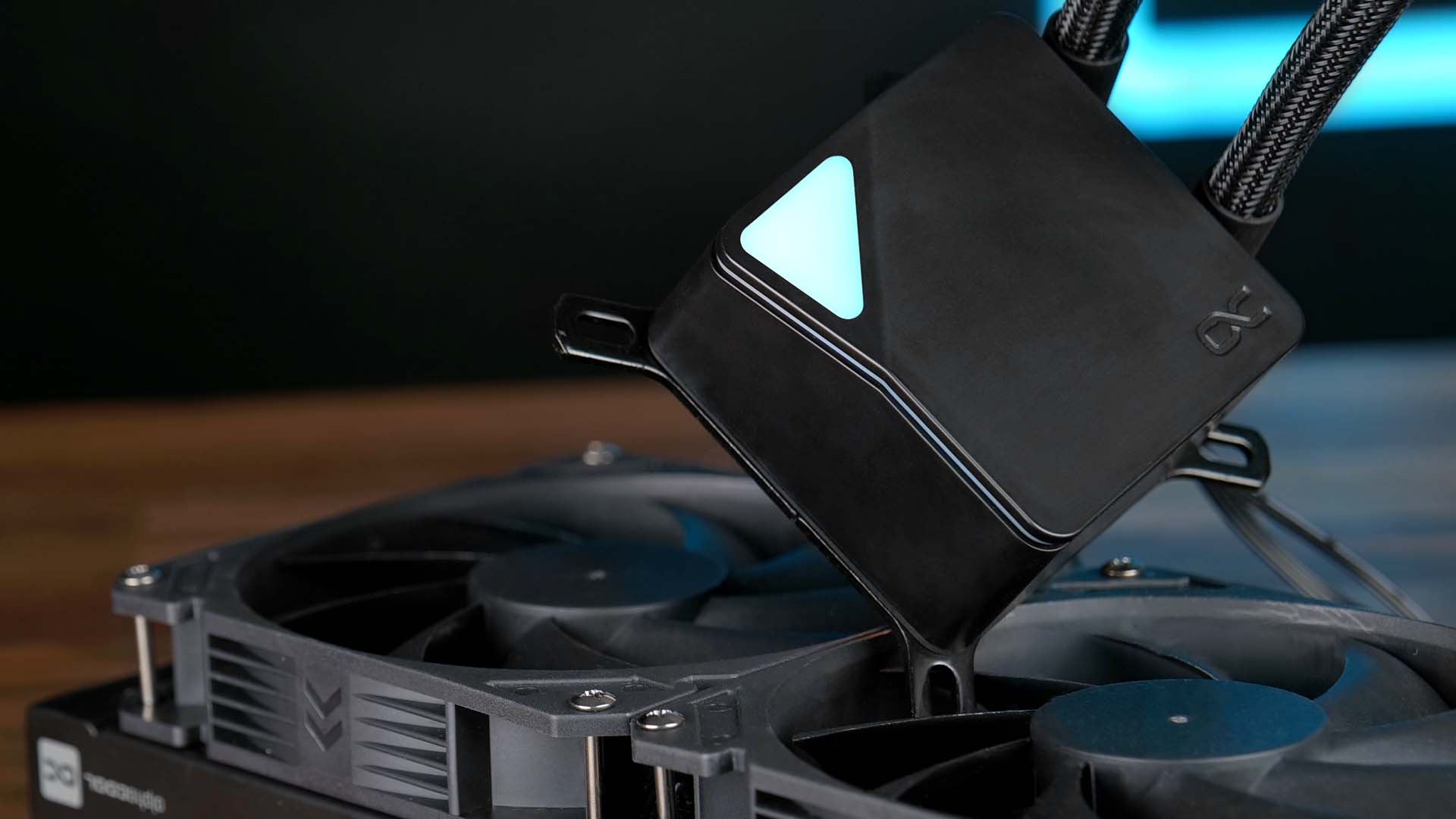
Although we started this review by hoping that it would not be the case, it happened nonetheless.
The Noise created by the Core fans used on the T38 Ocean drags the overall Noise-to-Performance ratio of the whole product down to one of the worst 360mm AIOs.
However, Noise is not the main focus of this series, it was performance at an exceptionally good price.

On this front, unfortunately, the Core Ocean T38 did not score many points either.
Performing roughly like a Phanteks Glacier One 360MP or Xilence LQ360 does not make the Core Ocean a top performer, it makes it an average performer.
Additionally, the price is not exceptionally good. At 85€ as of writing this review, it is priced very, very well, however, the Xilence LQ360, is priced better, while its noise-to-performance ratio leaves the Core Ocean in the dust.

To make matters worse, the build quality and general feel of the AIO could maybe be described as "average", but surely not upper shelf.
Although we did like the water block, the tubes just left us with a sour taste due to their incredibly cheap touch.
All in all, the Core Ocean T38 360mm is not a bad product, it is exactly what Alphacool promised, a very affordable AIO with 360mm performance. And it does exactly that. However, the Noise it creates makes it hard to recommend this AIO as opposed to alternatives, which may even be priced more competitively.
Additionally, although it was not promised, considering the much thicker radiator the T38 comes with, we did expect to perform it at least better than the average 360mm AIO, something that just did not happen.

Due to all of these reasons, we would like to suggest looking otherwise. If you are aiming for the best bang-for-the-buck, you might want to look into Xilence's L360.

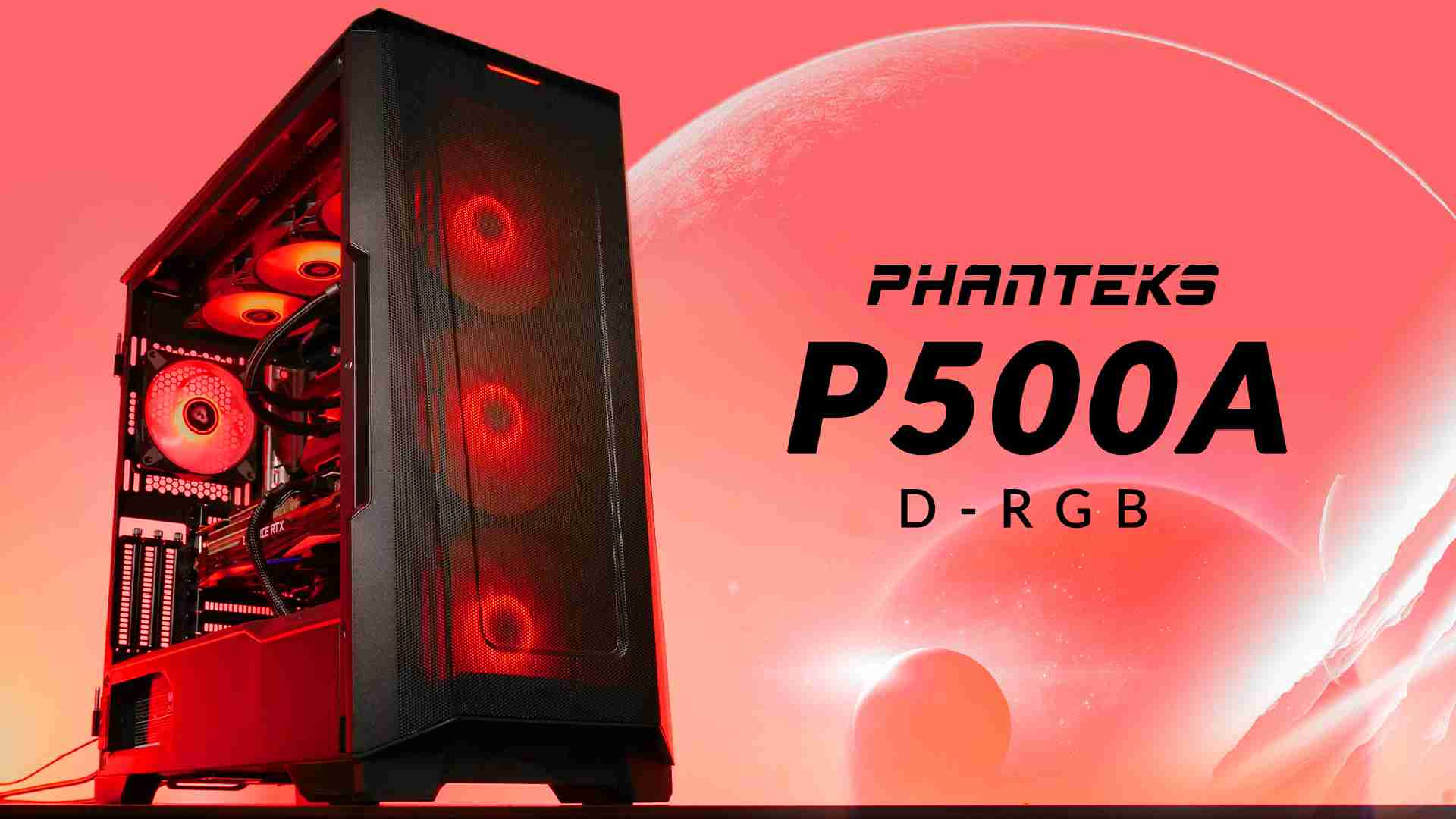
Phanteks P500A Review
About a year ago, we already had a look at Phanteks P200A. Now, lets find out if Phanteks bigger Mid-Tower sized P500A can de
Read More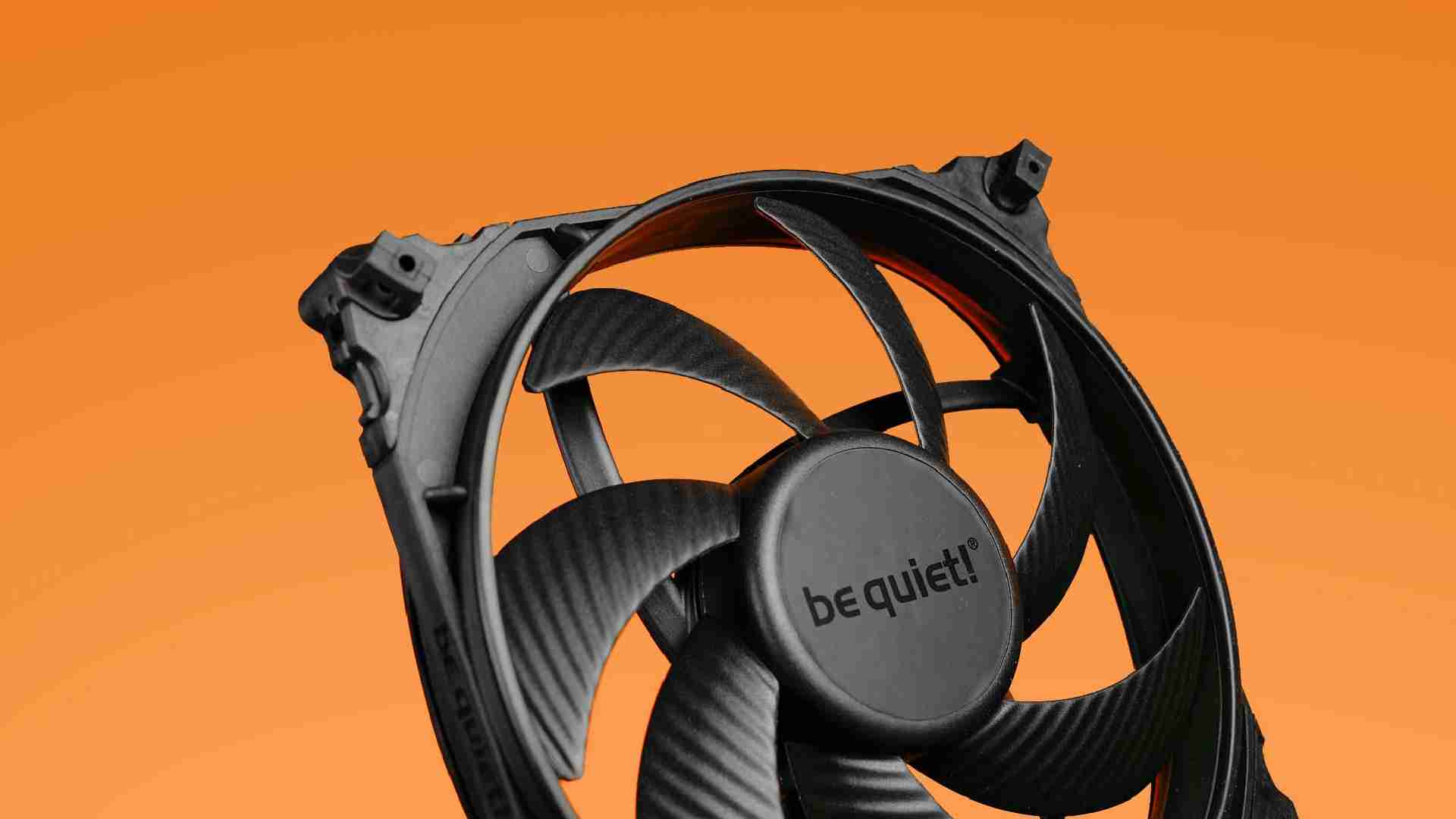
be quiet! Silent Wings 4 140 High-Speed Review
Just like the SW4 High-Speed, there is an upsized version of the perfect Case fan. Meet the Silent Wing 140mm High-Speed, whi
Read More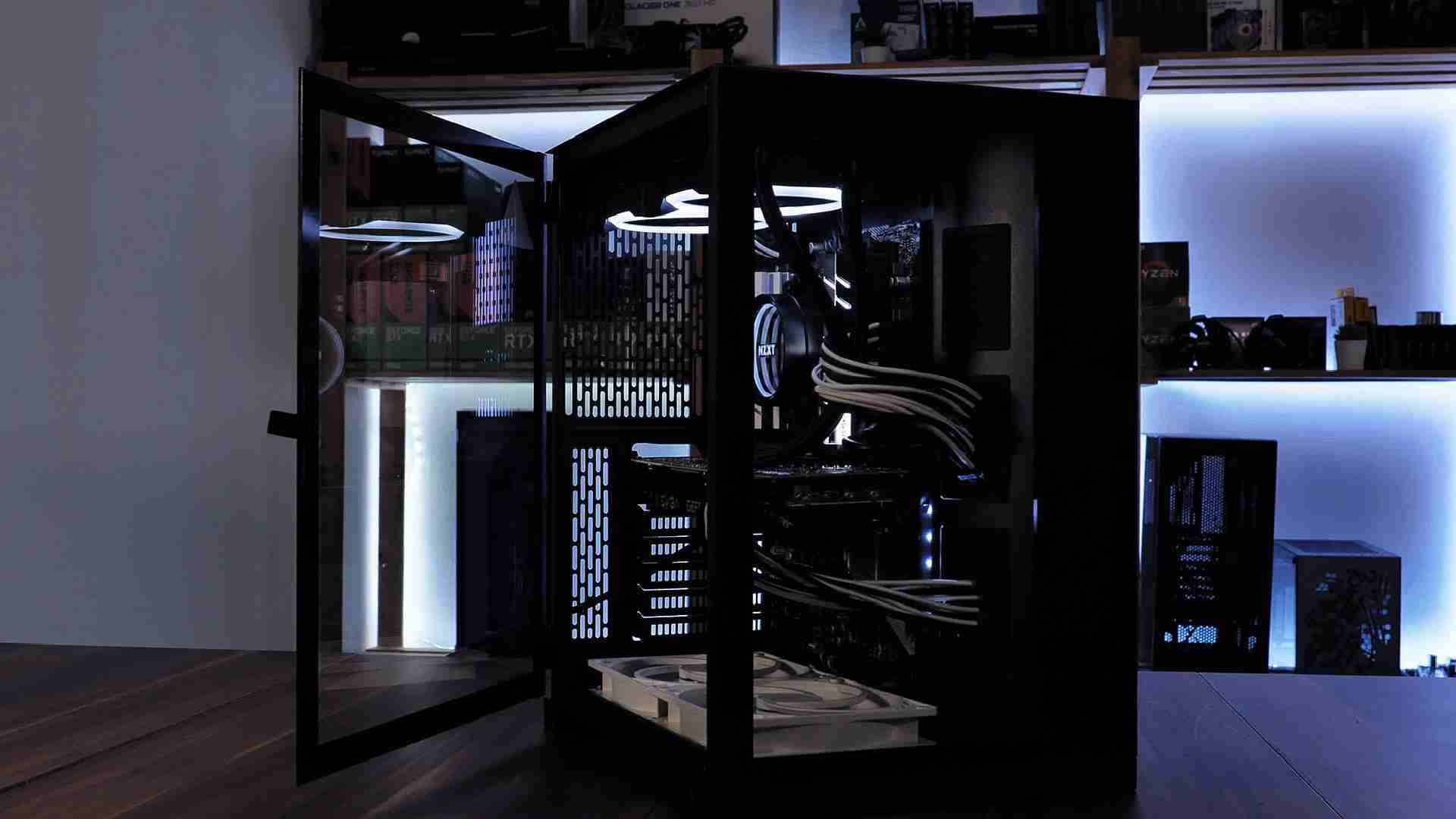
Inter-Tech C-702 Diorama Review
After the Panoramas success, Inter-Tech now revealed its little sister case, the Diorama C-702. But dont let size fool you, t
Read More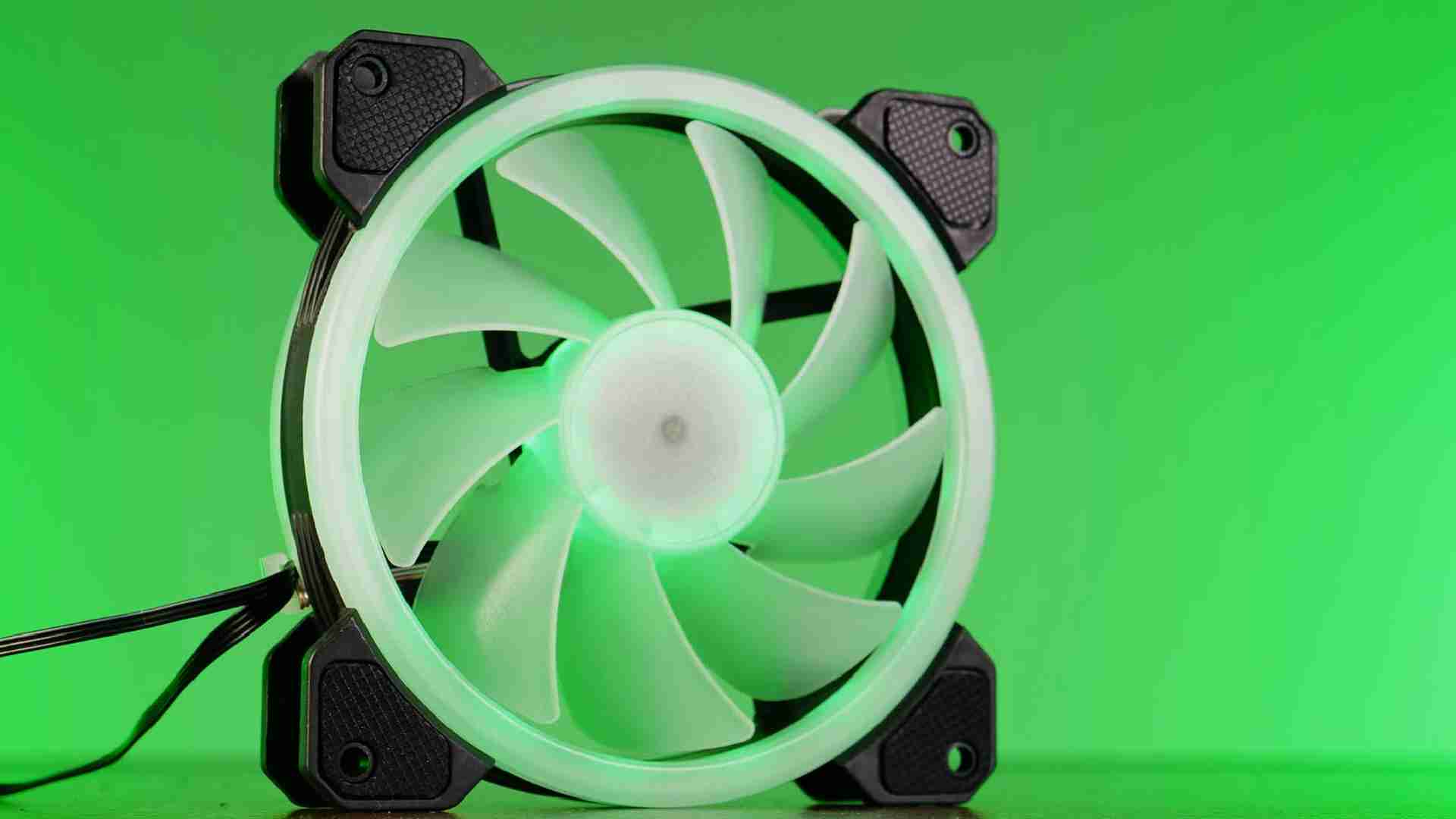
Gelid Stella Review
Gelid tries its luck on the already saturated RGB Fan market with a budget-oriented option called STELLA. Lets see what their
Read More